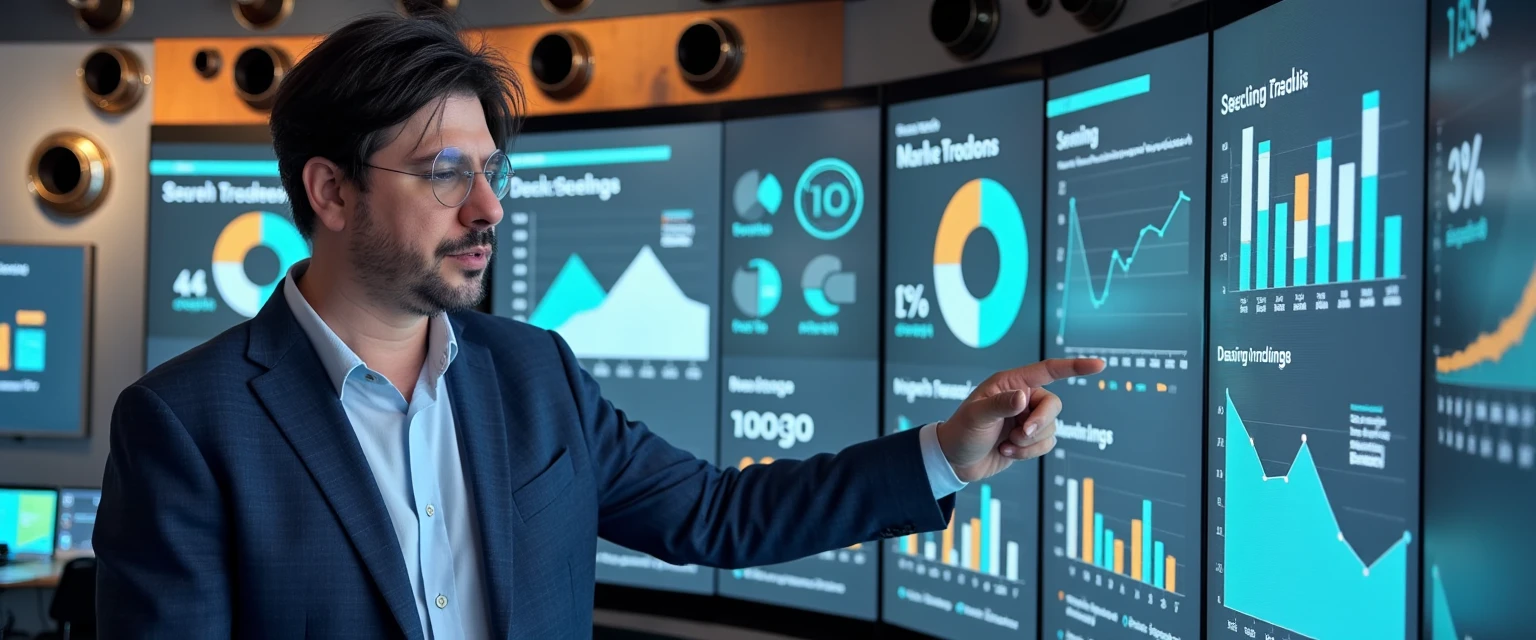AI Radar: Google Targets Children and 1.4 Million Jobs at Risk – The Ethical Dilemma of the Last 24 Hours
May 4, 2025 | by Matos AI

Another day, another series of events that are reshaping the horizon of artificial intelligence in Brazil and around the world. As I closely follow the rapid advancement of these technologies, I become increasingly convinced that we are entering a territory where ethical issues need to go hand in hand with innovation.
AI and children: Google prepares the ground to conquer the next generation
The most impactful news of the last 24 hours comes from Google, which plans to launch a version of Gemini, its AI chatbot, for children under 13 next week. Second The Globe, the tool will be accessible through the Family Link service and will feature parental controls.
The strategy is clear: to attract increasingly younger users, helping with schoolwork and storytelling. But at what cost? Even with specific protections, the company itself recognizes the risks of accessing inappropriate content.
Join my WhatsApp groups! Daily updates with the most relevant news in the AI world and a vibrant community!
- AI for Business: focused on business and strategy.
- AI Builders: with a more technical and hands-on approach.
It’s worth remembering that we’re not just talking about explicit content risks, but about something much more subtle and profound: we’re shaping how the next generation will interact with technology, think and solve problems. When we deliver ready-made answers, what room is left for the development of critical thinking?
The Dark Side of Digital Companions
As Google prepares its move, worrying reports emerge about AI apps that simulate companionship for young people. The Brazilian Post Office brings a serious warning: experts are pointing out significant risks of these digital companions for children and adolescents.
A tragic case has recently come to the fore: a teenager who committed suicide after interacting with a chatbot. This is not just some distant scaremongering – it is a reality that is already knocking on our doors.
In my years working in technology and innovation, I’ve learned that every new tool brings with it not only benefits, but also responsibilities. The question we should ask ourselves is not just “can we do this?” but “should we do this?”
The great challenge of the labor market: 1.4 million jobs at stake
Leaving the children's universe and entering the adult world, AI continues to cause waves of impact. THE TIME brings an alarming report about the telemarketing sector in Brazil, which employs around 1.4 million people and is among the 15 occupations with the fastest declining trend between 2025 and 2030.
Telemarketing is a perfect microcosm for observing digital transformation in action. On one side, we have the efficiency and cost reduction that AI promises. On the other, we have real people with families to support and bills to pay.
This is not a simple question of “natural market evolution”. We are talking about lives that need to be redesigned, about professionals who need to reinvent themselves at record speed.
The case of the judge and the 969 sentences: when ethics meets efficiency
Another emblematic case comes from the Maranhão judiciary. According to Migalhas, a judge is being investigated by the General Inspectorate of Justice of Maranhão for an anomalous increase in the number of sentences – from 80 to 969 – possibly thanks to the use of AI.
This case perfectly illustrates the dilemma we face: on the one hand, technology can bring unprecedented efficiency; on the other, it raises profound ethical questions about the quality and individuality of judicial decisions.
In parallel, the 27th Federal Court of Rio de Janeiro ordered the suspension of a website that allows the creation of initial petitions by AI for special courts, such as reported by the Legal Consultant. The judge highlighted the violation of the Statute of the Bar, bringing to light questions about the limits of automation in traditionally human professions.
The other side of the coin: innovation and opportunities
It’s not all challenges, of course. AI also opens doors to innovations that can positively transform entire industries.
IBM bets on AI mainframe to boost sales
IBM is launching its new AI mainframe, the z17, which according to analysis by Bank of America, could underpin a strong sales cycle for the technology group. Available from June 18, the company believes this technology will significantly boost its revenues.
It is a clear example of how established companies are reinventing themselves for the AI era, betting on robust infrastructure to support increasing processing demands.
Brazilian edtech revolutionizes education with personalized AI
On the national scene, we have Innyx, a Brazilian edtech that launched Plural+, a learning management platform that uses AI to personalize lesson plans based on student profiles.
This is an example of the kind of innovation I advocate: one that augments human capabilities rather than simply replacing them. Teachers remain essential, but they now have tools that help them personalize instruction in ways that were previously impossible.
In my work with startups and innovation, I always emphasize that true disruption is not about making humans redundant, but about enabling us to do what we do best, freed from repetitive and mechanical tasks.
AI in politics: the new frontier of communication or a danger to democracy?
The last 24 hours have also brought to the fore a debate about the use of AI in political campaigns. The Option Newspaper discusses whether this represents an innovation or a danger to the democratic process.
As if the theoretical discussion were not enough, we had controversial practical examples: Trump Posted an AI-Generated Photo of Himself Dressed as the Pope, causing outrage, according to Valor Econômico. The The White House also entered the controversy, posting a similar image, as reported by Gazeta do Povo.
This kind of use of AI to create potentially misleading political content is exactly the kind of scenario that forces us to think about clearer regulations and ethical standards.
The road ahead: strategic preparation and adaptation
The landscape that is emerging is complex and multifaceted. AI is here to stay and its impact will be increasingly profound in every aspect of our lives – from work to education, from politics to entertainment.
As I have said in my lectures and mentoring sessions, the future does not belong to those who try to resist change, but to those who prepare themselves adequately for it. This means:
- For professionals: Continually invest in skills that complement AI, such as creativity, critical thinking, emotional intelligence, and collaboration skills.
- For companies: Adopt AI strategically, with a focus on expanding human capabilities, not just reducing costs.
- For educators: Rethinking curricula to balance technological fluency with the development of uniquely human skills.
- For governments: Develop regulatory frameworks that encourage responsible innovation, protecting fundamental values such as privacy, autonomy and equity.
In my mentoring work with startups and companies undergoing digital transformation, I have seen that the organizations that will thrive most in this new era are those that approach AI not as a silver bullet, but as a powerful tool that requires conscious and strategic use.
Beyond the Surface: The Questions We Need to Ask
To navigate this new territory wisely, we need to ask deeper questions:
- What kind of society do we want to build with these technologies?
- How do we ensure that the benefits of AI are distributed fairly?
- What safeguards do we need to implement to protect the most vulnerable?
- How can we preserve the best of the human experience while embracing new possibilities?
These are not questions that engineers or tech CEOs can answer alone. They require a broad and inclusive dialogue, involving multiple perspectives and disciplines.
In my work with innovation ecosystems, I have argued that we need more bridges between technologists, humanists, policymakers, and ordinary citizens. AI is too powerful to be left in the hands of just one group.
Building your future in the age of AI
If you are reading this post, you are probably thinking about how to position yourself – or your organization – in this scenario of accelerated transformation.
In my mentorships, I have helped entrepreneurs and executives develop AI strategies that are not only technically sound, but also ethically responsible and aligned with core human values.
The good news is that we are still in the early stages of this revolution. There is time to act, to learn, to experiment, and to make adjustments. But that time is quickly running out.
The future belongs to those who not only understand technology, but who have the vision and courage to use it in the service of greater purposes – creating economic value, yes, but also social, cultural and human value.
How are you preparing to navigate this new world? I’d love to hear your perspectives in the comments below.
✨Did you like it? You can sign up to receive 10K Digital's newsletters in your email, curated by me, with the best content about AI and business.
➡️ Join the 10K Community here
RELATED POSTS
View all



